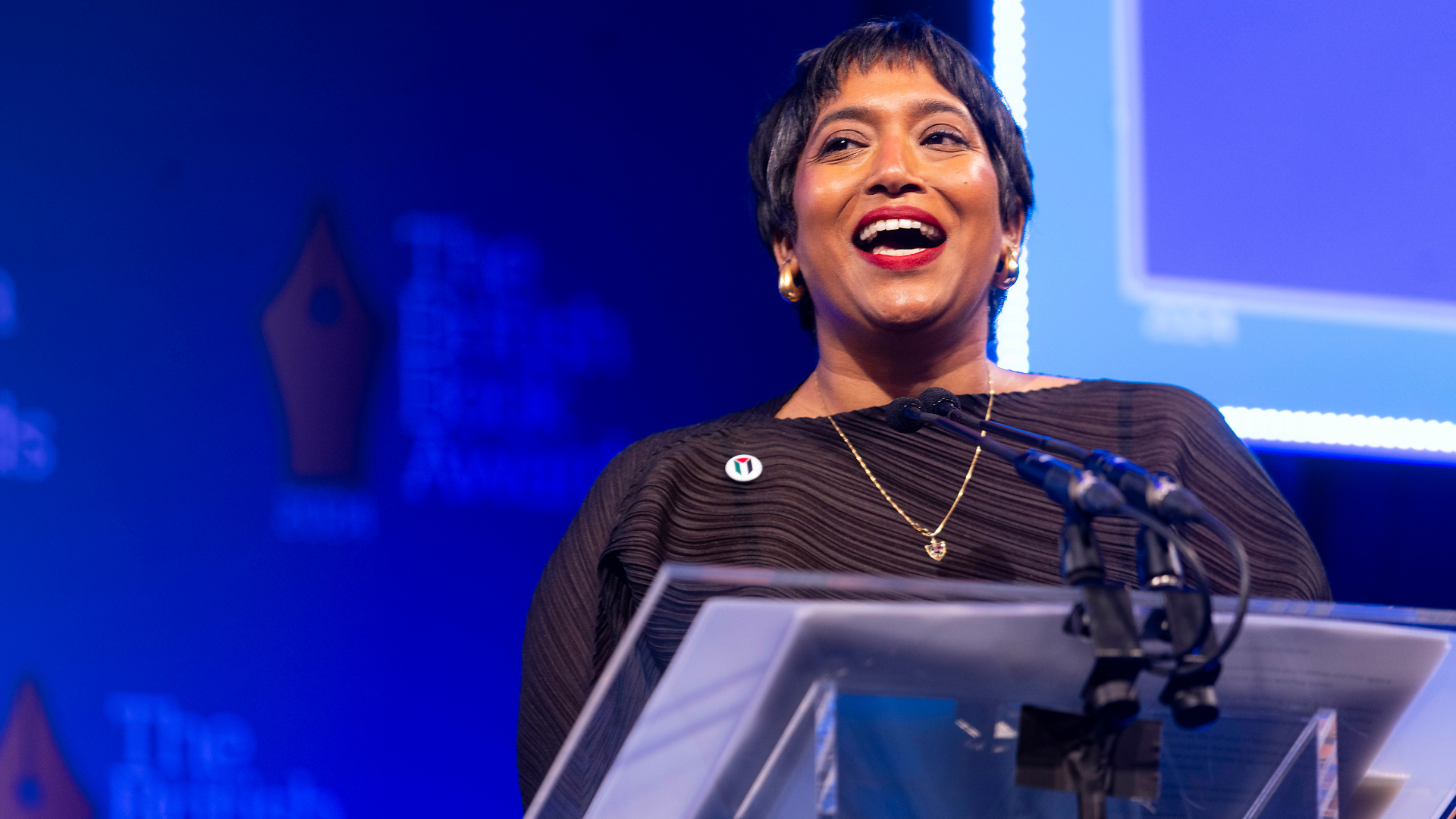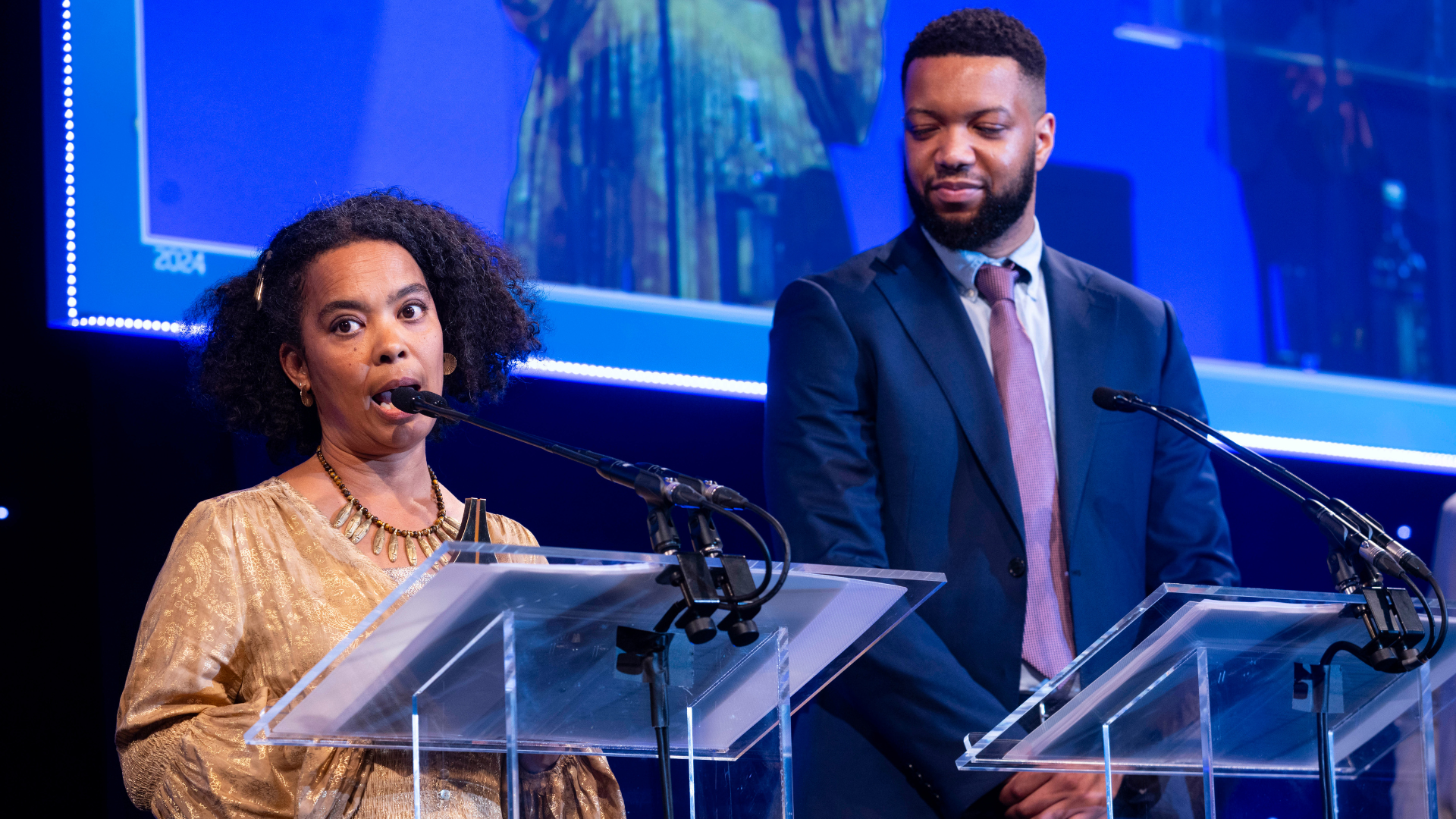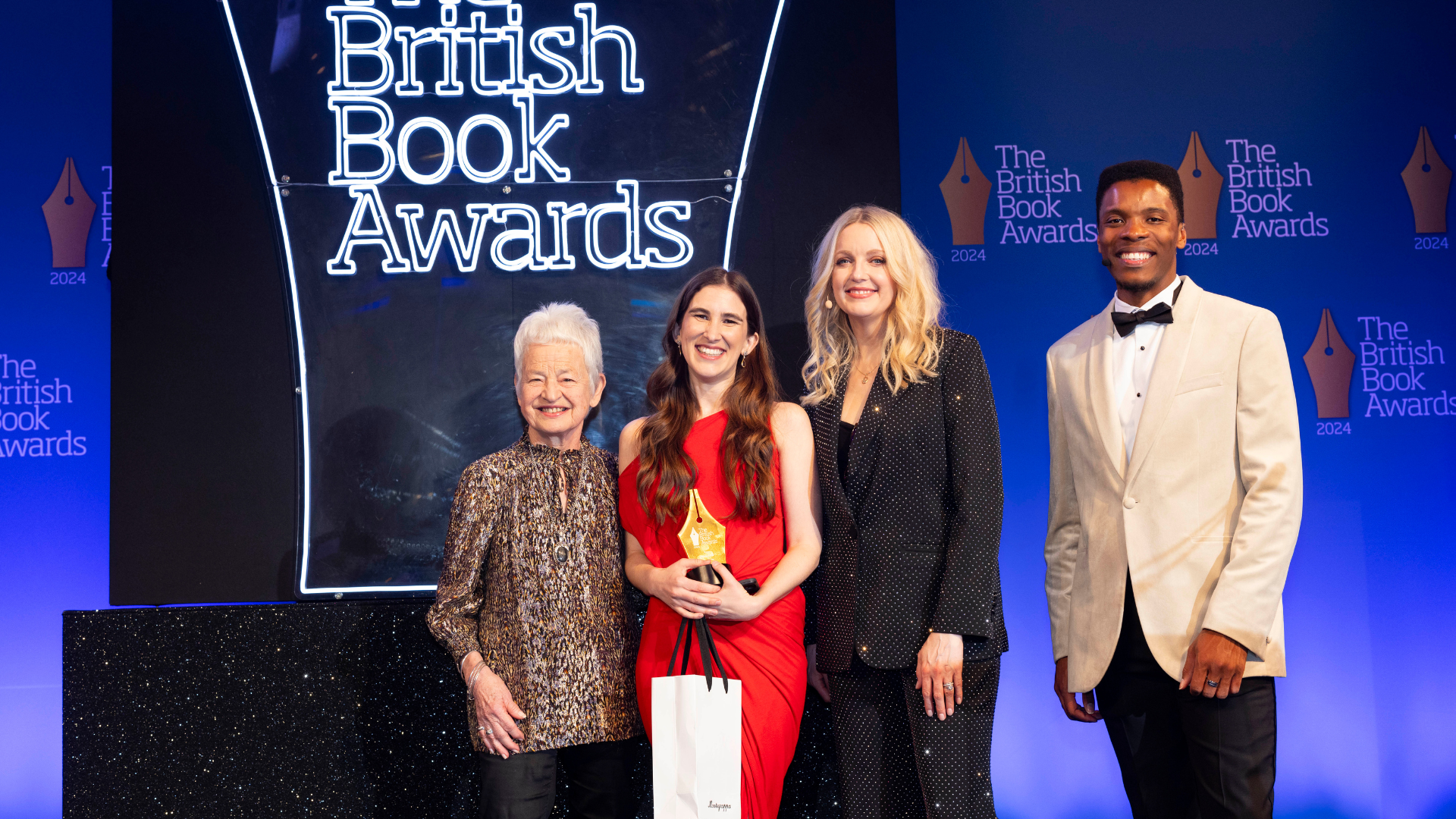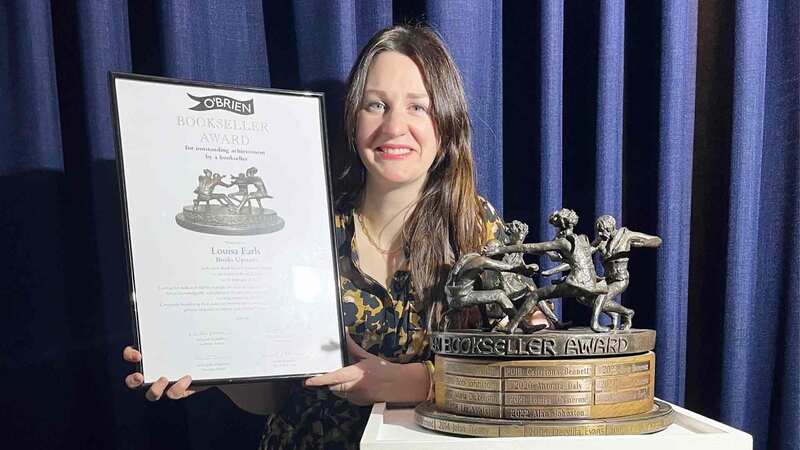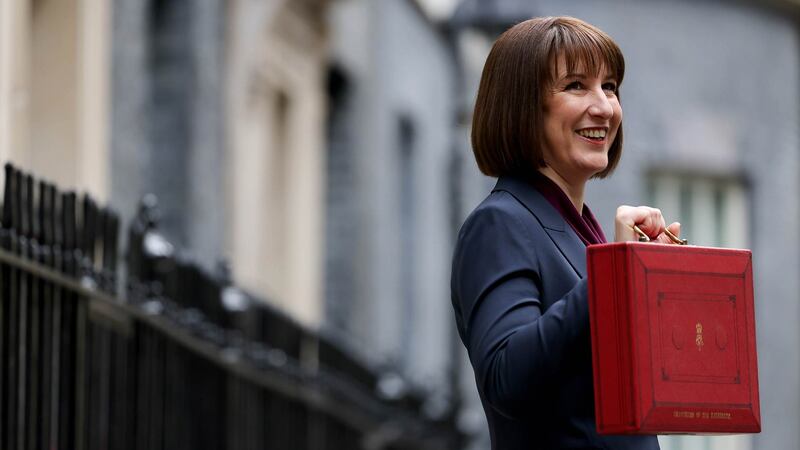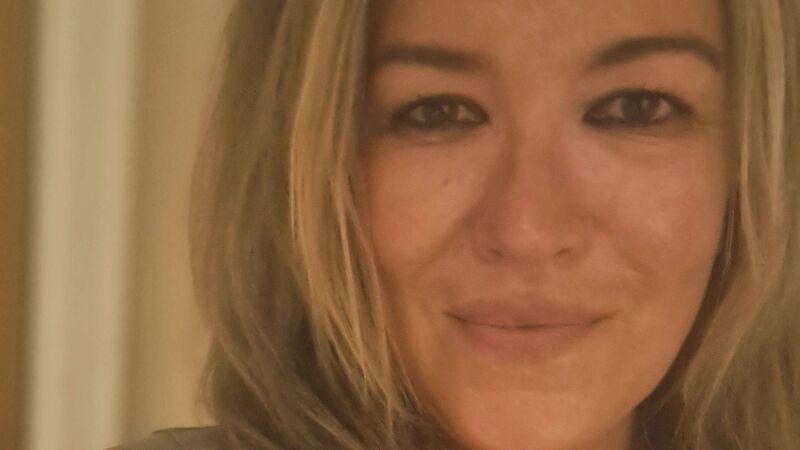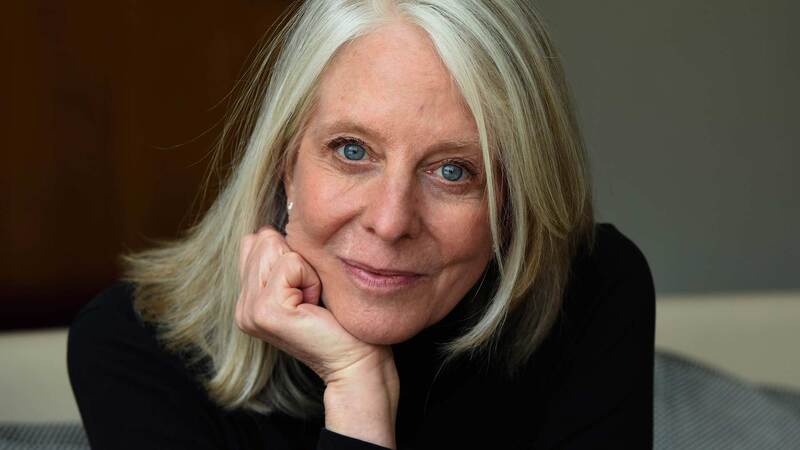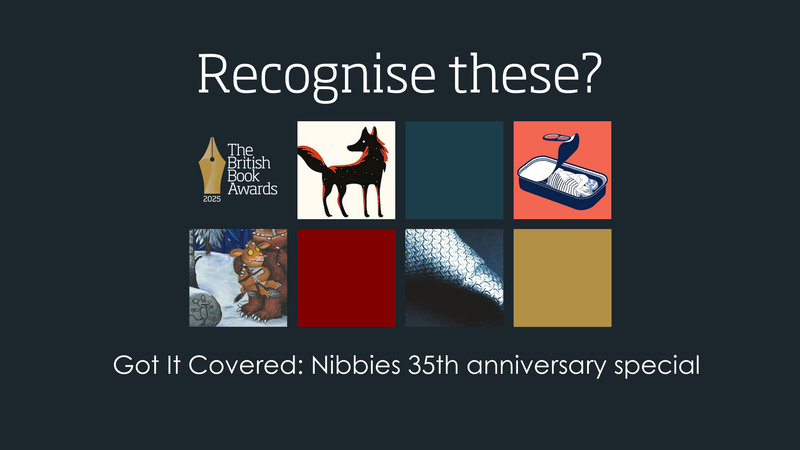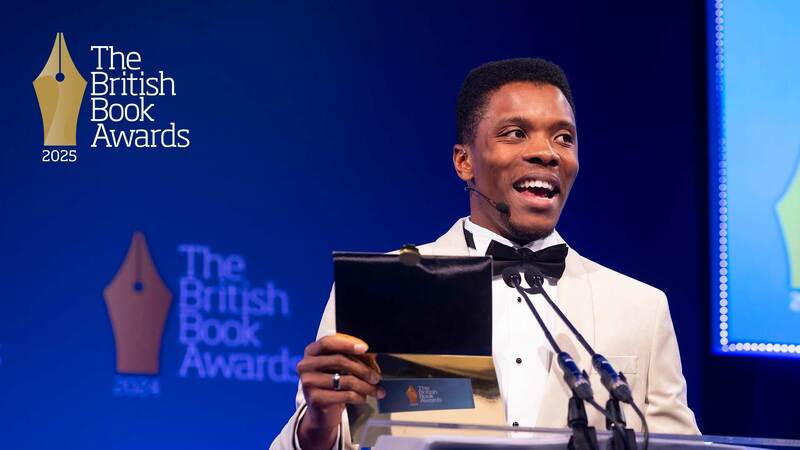You are viewing your 1 free article this month. Login to read more articles.
Award winners celebrate the power of stories at 2024 Nibbies
Politics, the importance of reading for pleasure, and the threats to free expression were high on the agenda at The British Book Awards 2024.
Fourth Estate’s publishing director Kishani Widyaratna, who was named Editor of the Year, dedicated her award to “all our Palestinian colleagues”. Meanwhile, Georgian-Russian author Boris Akunin, who won the Freedom to Publish Award presented by Nazanin Zaghari-Ratcliffe, warned of state suppression, stating that a “frightened writer cannot be a good writer, ever”.
Children’s author Atinuke described how winning the award would have been "beyond the wildest dreams" of enslaved people who were "sold in Britain on the equivalent of eBay" in the past. Meanwhile, Katherine Rundell – who scooped the awards for Author of the Year and Children’s Fiction – spoke of the importance of children having access to books: "I worry that if we cut children off from books, we cut them off from a life of reading", she said. The author (and Nibbies judge) Jacqueline Wilson, who presented Rundell with the Author of the Year award to huge applause, said the event was her favourite publishing party.
At the ceremony, held in London (13th May), Widyaratna said: “Many people tonight have spoken about the importance of stories, the importance of books in communicating understanding. The thing we’re talking about then is our shared, common humanity. And so it wouldn’t be possible for me to stand here today, and to not acknowledge the genocide happening in Gaza. More than 35,000 Palestinians have been killed in just over 200 days, including more than 14,500 children, and thousands more who are injured, missing and displaced. I dedicate this award to all our Palestinian colleagues, the writers, publishers, journalists, illustrators, academics and cultural workers who have been killed and who shall not be forgotten. Ceasefire now.”
Akunin, the first author to have his books banned in Russia since the Soviet era, said: “I feel immensely honoured. I also feel like I’m an imposter, like I’m some kind of freedom fighter. Which I’m not, I’m not a fighter. I’m a writer. The only thing I wanted was to write books, to see them published. And hopefully to get into bestseller lists. That’s all.
“I will tell you how this happens: your country gradually slides into dictatorship. Then it starts in war. Then you find yourself in a situation where you discover that those two words, ‘freedom’ and ‘to publish’, have become incompatible. In your country, you have to choose. If you want to be published, you need to shut up and to self-censor your writing. If you don’t do that you won’t be published. And there might be even graver consequences.
“Well, this is a hard moment in life but this is not a hard choice for a writer because, well, let me put it this way: it is okay if you’re frightened as a human being because you’re in danger or under a lot of pressure. But it is not okay if you are a frightened writer. A frightened writer cannot be a good writer, ever, anywhere. So I’m very glad that almost all big names in contemporary Russian literature continue to write as they did before without censorship. They are cancelled in Russia one after another, their books banned. And still they do what they do because they are writers. Either you’re a writer or you’re not. Dear colleagues, fellow writers, I wish you all the eternal bliss of writing in freedom and the freedom to be published.”
The author Atinuke, who won the Children’s Non-Fiction Award for Brilliant Black British History (Bloomsbury), said: “For hundreds of years, people, children, men, women, were sold in Britain on the equivalent of eBay, with the excuse being the colour of their skin, and we have stories of children in London being dragged by their hair through the streets when they tried to escape. Me standing here and winning this award for a Black history of Britain would’ve been beyond the wildest dreams of those enslaved people. One of the things that has made this possible were books. The autobiographies of Prince [Olaudah] Equiano and [Frederick] Douglass changed the minds of the British public about the institution of slavery. So, books are incredibly important, stories are incredibly important and we still don’t live in an equal and fair and safe society. But if we keep writing our books and keep telling our stories then maybe one day we will and all our wildest dreams will come true.”
Meanwhile Katherine Rundell added: “Books are where humanity has gone for the past 3,000 years to put down its best jokes and its most radical ideas and its boldest passions. But in England, only 29% of children say that they read for pleasure, compared with about 50% of children internationally. And the main obstacle, we know, is access. Getting books into children’s hands. And I worry that if we cut children off from books, we cut them off from a life of reading, which is to cut them off from the song that humanity has been singing for thousands of years. And the older I get the more really really fucking angry I get about that, and it seems to me that it is one of our crucial jobs as citizens to clear the way to the path for children to become readers. And I think we need to do that with our political action and our money, if we’re lucky enough to have any, and our protest and our refusal to just let it happen. And I am so grateful to be in a room full of people who are fighting that fight, and I think we need to keep fighting it, and fight it even louder. We must not stop, because even though it is difficult, it is so wildly worth doing, and it is just so wildly worth the fight to get books to children now.”





